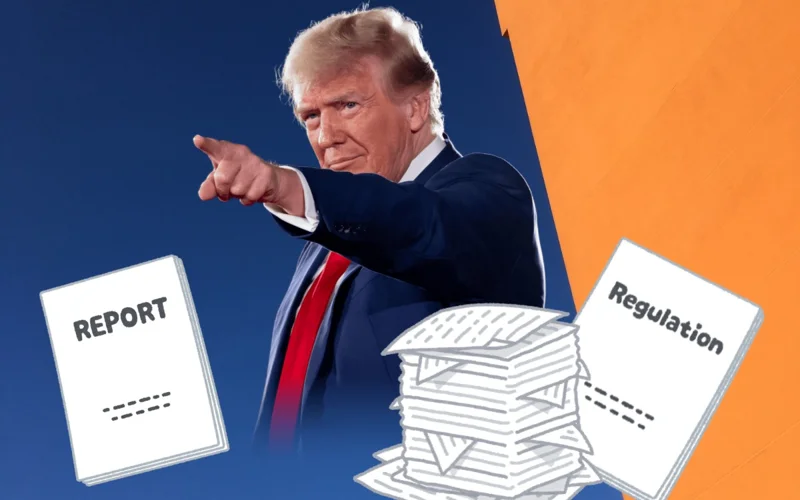Trump proposes end to quarterly reports: What could it mean for markets and Kazakhstan
U.S. President Donald Trump has urged American companies to stop publishing quarterly earnings reports and instead move to releasing results only twice a year, Kazinform News Agency reports.

Writing on his Truth Social platform, Trump argued that quarterly reporting distracts executives from long-term planning, adds unnecessary costs, and benefits only Wall Street analysts. He said a shift to semiannual reporting would give companies greater freedom to focus on innovation and growth.
“China has a 50 to 100 year view on management of a company, whereas we run our companies on a quarterly basis??? Not good!!!” Trump said, contrasting what he described as China’s long-term strategic vision with the short-term pressures on U.S. firms.
Why it matters
Quarterly reporting is a bedrock requirement of the U.S. Securities and Exchange Commission (SEC). Publicly traded companies must file detailed financial statements—known as 10-Qs—every three months. These reports are closely followed by investors and analysts for insights into corporate health and market trends, making the American system one of the most transparent in the world. The market-moving power of such reports is clear: when Oracle recently released its quarterly results, the company’s stock price surged, briefly making co-founder Larry Ellison the richest person on earth in a single day.
If Trump’s idea were adopted, it would mark a dramatic change in how the world’s largest economy communicates financial information. Investors would have fewer regular updates on company performance, and volatility could rise if negative surprises emerge between reporting periods.
Global implications
The United States is home to the world’s largest stock market, and its practices often influence global standards. In Europe — including the European Union and the United Kingdom — listed companies are generally required to report results only twice a year. Similar semiannual reporting systems are also common in other regions, making the U.S. approach unusually frequent.
Trump’s reference to China highlights another aspect of the debate. Chinese listed firms also publish quarterly reports, but governance there often emphasizes longer-term priorities. Large state-owned enterprises are guided by national strategies such as energy security, technological self-reliance, or the Belt and Road Initiative. Executives are assessed against five-year plans and broader government objectives rather than short-term profits. Even private companies tend to align with long-term state goals to ensure stability and growth. Trump’s comparison may also signal another front in the broader competition between Washington and Beijing — not only in technology and trade, but in corporate governance and financial culture.
This contrasts with the U.S., where quarterly earnings announcements strongly influence corporate decisions and market reactions. Supporters of Trump’s idea say that the move would ease the burden on companies and encourage more firms to list shares publicly. Critics warn that investors could face higher risks, as less frequent reports may concentrate market reactions into fewer, sharper swings.
Impact on Kazakhstan
For Kazakhstan, the implications are indirect but important. Foreign investors often compare emerging markets against global benchmarks, particularly those set by the U.S. If disclosure requirements in Washington are reduced, expectations elsewhere could shift as well. That might ease compliance for companies but could also raise questions about consistency and reliability.
At the same time, Kazakhstan could turn this moment into an opportunity. By continuing to emphasize openness and reliability, the country may present itself as a market that values stability and investor confidence. For a state seeking to attract long-term capital and strengthen its role in global finance, such positioning could be a valuable advantage.